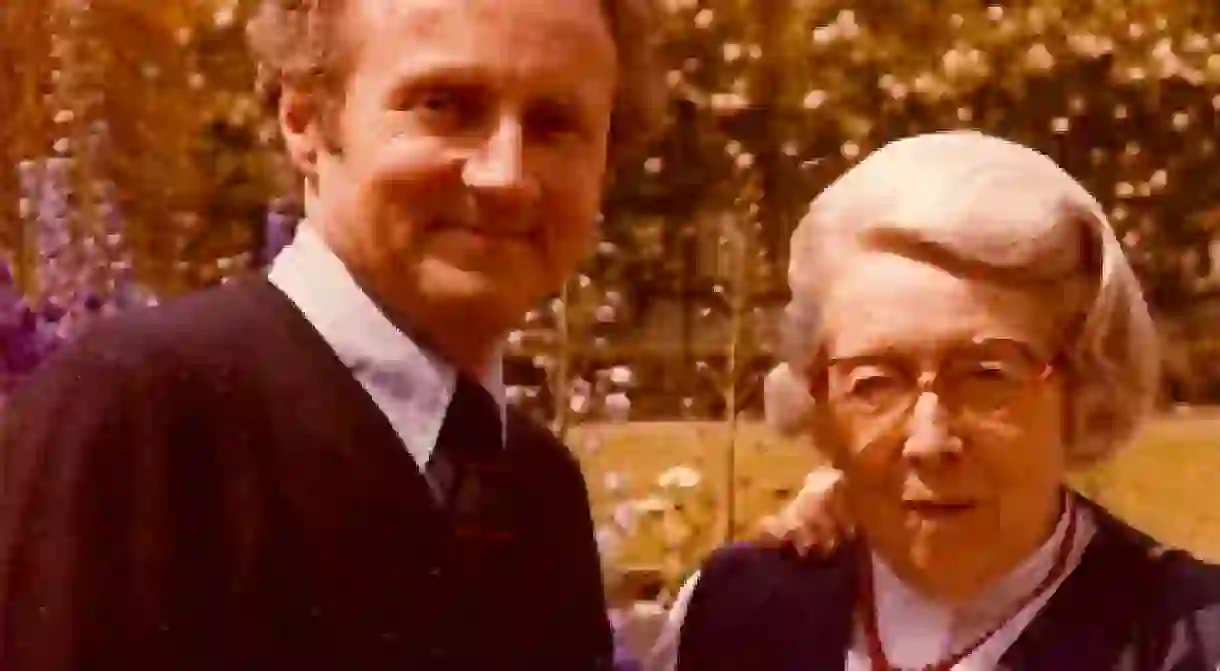André Delvaux, The Godfather Of Belgian Cinema

It is telling of great vision and originality that a man who made merely eight fiction films throughout his life has come to be regarded as the founder of an entire nation’s cinema. Heverlee-born André Delvaux shipped between the country’s two main languages and cultures just as his work shipped curiously between reality and dreams. We take a closer look at the auteur that would put postage stamp-sized Belgium on the cinephilic map.
It took a young André Delvaux some time to discover his calling. In a period that the most cynical would now describe as a ‘quarter life crisis’ – or might dub him as an ‘eternal student’ – Delvaux took full advantage of the teachings that the nearby Free University of Brussels had to offer. It was in the capital that he earned degrees in Germanic Philosophy and Law and studied composition at the Royal Conservatory. A familiar face at the Royal Film archives (now known to the Brusseleir as Cinematek), he provided the screenings of their silent movies with live piano melodies for years – a first indicator of the massive role music would come to play in later works such as Appointment in Bray (1971) and Belle (1973).

Yet, it wasn’t until the longtime film lover was on the brink of 40 that his first feature would see the light of day. The Man Who Had His Hair Cut Short (1966) – an adaptation of the eponymous Johan Daisne novel – is for many still the title that springs to mind first when confronted with the Delvaux name. Eros and Thanatos collide in the story of Govert Miereveld, who flees his home and job over an unrelenting desire for a pupil in the girls’ school where he teaches. Ever circling back are the surreal scenes in which another obsession of our tortured protagonist is shown: unnecessary trips to the barbershop for a trimming of his already balding head. During these haircuts, the camera seems almost equally obsessed as its subject, staying glued to Govert for minutes on end with only the barber’s lightning-fast hands occasionally breaking the spell.
The Man is also an indicator of the kind of deeply nationally grounded artist Delvaux was. The director took a commercial risk his first time out by filming in Dutch, a choice that greatly diminished the chances of the film being picked up by neighboring cinephilic country France. Suffice it to say, the gamble paid off. Aside from One Night… a Train (1968), his lauded feature debut remains Delvaux’s hallmark work. The blending of dreams and reality in it would persist throughout the rest of his oeuvre, with One Night being a prime example.
Another adaptation of a novel by the Dutch literary master of magic realism, Daisne, linguist Mathias is confounded by the disappearance of his French girlfriend Anne when he wakes up after a train nap. Things unravel from there as viewers are never really sure what’s reality, dream, or simply Mathias’ warped perspective in this film imbued with the auteurian atmosphere of the European greats. Entirely unique once more is Delvaux’s highlighting of the Belgian language rift by having his characters speak both French and Dutch – a feat few national directors have accomplished and that forced Delvaux to go looking for his budget abroad. Hence, the film’s German premiere where the director’s heart clearly overflowed with Belgitude.
While the documentary To Woody Allen, from Europe with Love (1980) came as a bit of a surprise – though both helmers, of course, shared a fondness of showing elusive young women – Delvaux’s body of work is unified by a fascination of certain themes. These include unattainability, existential searches, language or the lack thereof, metamorphoses (of even Kafkaesque proportions in One Night) and, of course, the aforementioned blending of dreams and reality (similar to Flemish masters Bosch and Magritte).
But equally – and this was an ideal that grew throughout Delvaux’s process – the Wagnerian fusion of all art forms. Films adapted from literature, showing stills reminiscent of paintings (a naked woman next to a train in Belle recalls the work of namesake Paul Delvaux) and setting aside an essential role for music were what the director strove for. Ironically, the piece of work in which he comes closest to achieving this utopia is also his most obscure film. Babel Opéra (1985) combines real live footage of rehearsals of Mozart’s Don Giovani in Brussels with a fictional account of a director trying to adapt the musical. Although oftentimes confusing, Babel Opéra gives us an indication of what Delvaux’s auteurian style was all about. Above all, he was a unifier – of film and its preceding art forms, of Dutch and French, of dream and reality.













